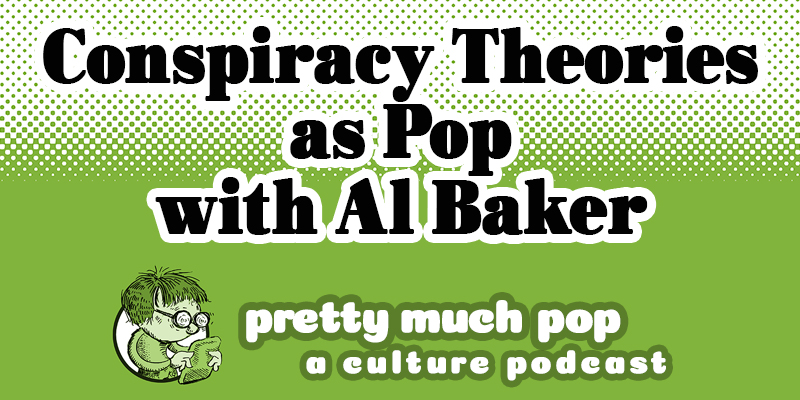
Ex-philosopher Al Baker works at the UK-based Logically, a company that fights misinformation.
He joins your hosts Mark Linsenmayer, Erica Spyres, and Brian Hirt to try to answer such questions as: What's the appeal of conspiracy theories? How similar is being consumed them to being a die-hard fan of some pop culture property? What's the relation between pernicious conspiracy theories and fun speculation (like, maybe Elvis is alive)? Is there a harmless way to engage in conspiracy theorizing as a hobby? Is something still a conspiracy theory in the pejorative sense if it turns out to be true?
We touch on echo chambers, the role of irony and humor in spreading these theories, how both opponents and proponents claim to be skeptics, Dan Brown Novels, Tom Hanks, the Mel Gibson film Conspiracy Theory, and documentaries like Behind the Curve (about Flat Earthers) and The Family.
For expert opinions on the psychology of conspiracy theories, try The Conversation's Antill Podcast, which had a whole series on this topic. For even more podcast action, try FiveThirtyEight, BBC's The Why Factor podcast, Skeptoid, and The Infinite Monkey Cage.
Here are some more articles:
- "Why We Should Not Treat All Conspiracy Theories the Same" by Jaron Harambam
- "We’re Keeping A Running List Of Hoaxes And Misleading Posts About The Nationwide Police Brutality Protests" by Jane Lytvyneko and Craig Silverman
- "The Greatest Celebrity Conspiracy Theories of All Time" by Matt Miller
- "My Father, the QAnon Conspiracy Theorist" by Reed Ryley Grable
- "COVID-19 and the Turn to Magical Thinking" by Hugh Gusterson
- A new podcast called Wind of Change claims that the CIA wrote the Scorpions song by that name.
If you enjoy this, try Pretty Much Pop #14 on UFOs. The Partially Examined Life episodes referred to in this discussion are #96 on Oppenheimer and the Rhetoric of Science Advisers and #82 on Karl Popper.
Learn more at prettymuchpop.com. This episode includes bonus discussion that you can only hear by supporting the podcast at patreon.com/prettymuchpop. This podcast is part of the Partially Examined Life podcast network.
Pretty Much Pop: A Culture Podcast is the first podcast curated by Open Culture. Browse all Pretty Much Pop posts or start with the first episode.
Pretty Much Pop: A Culture Podcast #49 Considers Conspiracy Theories as Pop is a post from: Open Culture. Follow us on Facebook, Twitter, and Google Plus, or get our Daily Email. And don't miss our big collections of Free Online Courses, Free Online Movies, Free eBooks, Free Audio Books, Free Foreign Language Lessons, and MOOCs.
from Open Culture https://ift.tt/3fKC7rA
via Ilumina
Comments
Post a Comment